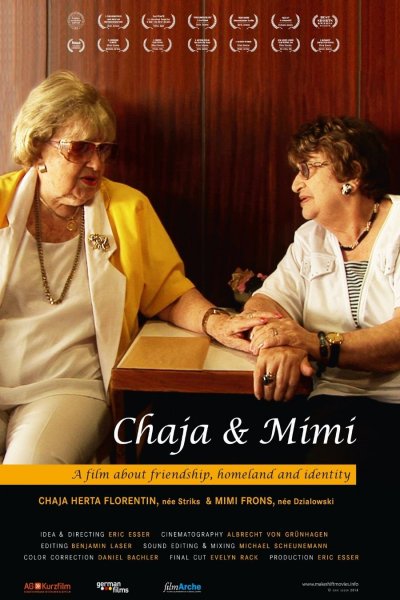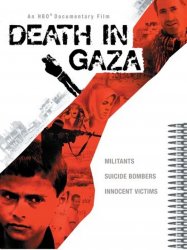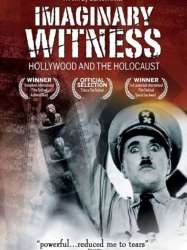Chaja & Mimi is a film of genre Documentary
Chaja & Mimi (2009)

If you like this film, let us know!
Length 10minutes
Genres Documentary
Chaja & Mimi is a 2009 documentary short film by producer/director Eric Esser from Berlin, Germany. The work consists primarily of an interview with two Jewish Israelis, Chaja Florentin and Mimi Frons, about their ambivalent relationship to the city of their birth, Berlin. The first version of the film was completed and released in 2009 in Germany only; a second version of the film, fully revised for the international film market, was completed and released in 2013.
Synopsis
The Jewish protagonists in this documentary, so-called Yekkes, share memories of their childhood days in the Scheunenviertel and Berlin-Mitte, as they were growing up in the 1920s. They tell about their harrowing flight from Nazi Germany to Palestine in 1934. Chaja Florentin relates her experience of a subsequent return to postwar Germany to visit Berlin, which was very painful encounter for her. The emotional pinnacle of the film is reached with the joy and excitement that both women express when they are shown old historical photographs of the neighborhood streets where they grew up. To the final question in this filmed interview, of whether either woman would consider returning to Berlin for good, both answer with an emphatic no, stating on no uncertain terms that Israel is their home now. They express displeasure at many things in Israel, but they say that it is like a difficult child—one that cries all of the time, but one that you love unconditionally.Comments
Leave comment :
Suggestions of similar film to Chaja & Mimi
There are 8957 with the same cinematographic genres, 3674 films with the same themes (including 7 films with the same 4 themes than Chaja & Mimi), to have finally 70 suggestions of similar films.If you liked Chaja & Mimi, you will probably like those similar films :

Sabbath in Paradise (2000)
, 1h25Genres Documentary, Musical
Themes Films about music and musicians, Films about religion, Documentary films about music and musicians, Documentaire sur une personnalité, Documentary films about religion, Documentary films about cities, Jazz films, Musical films, Films about Jews and Judaism
Actors John Zorn
Rating26%






Echoes from a Ghost Minyan (1998)
, 47minutesGenres Documentary
Themes Films about religion, Documentary films about religion, Documentary films about cities, Films about Jews and Judaism
On February 22, 1882, the S.S. Illinois docked at the foot of Federal Street on the Delaware River in South Philadelphia. Among the passengers on board were 225 European Jewish refugees, most of whom settled nearby. By the close of World War I, a little over 40 years later, South Philadelphia was home to over 100,000 Jewish immigrants, making it the second largest Jewish neighborhood in the United States. However, the thriving community didn't last long. Soon after World War II, the Jews began moving to other parts of the city and surrounding suburbs. By the beginning of the 21st century, the Jewish community of South Philadelphia had almost completely vanished.

Confrontation at Concordia (2003)
Origin Canada
Genres Documentary
Themes Films set in Africa, Films about religion, Documentary films about law, Documentary films about war, Documentary films about historical events, Documentaire sur une personnalité, Documentary films about politics, Documentary films about religion, Documentary films about cities, Political films, Films about Jews and Judaism
The documentary opens with scenes of the violence at the event, depicting fighting between protesters and Jewish students attempting to enter the venue. This is followed by an interview with student Samir Elitrosh, a leader of the Solidarity for Palestinian Human Rights and the leader of anti-Israel violence who was later suspended. It also features interviews with Concordia's Hillel president Yoni Petel and Concordia rector Frederick Lowy, and concludes with a discussion of what it sees as the growing trend of anti-Israel activities on North American campuses.
 , 40minutes
, 40minutesDirected by Keiko Ibi
Origin USA
Genres Documentary
Themes Films about religion, Théâtre, Documentaire sur une personnalité, Documentary films about religion, Documentary films about cities, Films about Jews and Judaism
Rating60%





Le film est consacré à une troupe de théâtre juive de seniors de New York. Le groupe de personnes âgées partagent des détails intimes de leurs vies.

Being Osama (2004)
Directed by Mahmoud Kaabour
Origin Canada
Genres Documentary
Themes Films based on the September 11 attacks, Films about racism, Films about religion, Films about terrorism, Transport films, Aviation films, Documentary films about racism, Documentary films about law, Documentary films about war, Documentary films about historical events, Documentaire sur une personnalité, Documentary films about politics, Documentary films about religion, Documentary films about technology, Documentary films about terrorism, Documentary films about cities, Political films, Films about Islam, Disaster films, Films about aviation accidents or incidents, Films about language and translation, Films about hijackings
Rating70%





The documentary details the lives of six Montreal Arab men, all with the first name "Osama":

Death in Gaza (2004)
, 1h20Directed by James Miller
Genres Documentary
Themes Films set in Africa, Films about religion, Documentary films about law, Documentary films about war, Documentary films about historical events, Documentaire sur une personnalité, Documentary films about politics, Documentary films about religion, Political films, Films about Jews and Judaism
Actors James Miller, Saira Shah
Rating79%






Goodbye Holland (2004)
, 1h30Directed by Willy Lindwer
Genres Documentary
Themes Films about racism, Films about religion, Documentary films about racism, Documentary films about law, Documentary films about war, Documentary films about historical events, Documentaire sur une personnalité, Documentary films about religion, Political films, Films about Jews and Judaism, Documentary films about World War II

Hiding and Seeking (2004)
Genres Documentary
Themes Films about racism, Films about religion, Documentary films about racism, Documentary films about law, Documentary films about war, Documentary films about historical events, Documentaire sur une personnalité, Documentary films about religion, Political films, Films about Jews and Judaism, Documentary films about World War II
Rating77%






Israel, Why (1973)
, 3h5Directed by Claude Lanzmann
Origin France
Genres Documentary
Themes Films about religion, Documentary films about religion, Films about Jews and Judaism
Actors Claude Lanzmann
Rating76%





Pourquoi Israël (sans point d'interrogation) n'a pas de synopsis classique, ne raconte pas d'histoire, mais tente d’appréhender l'histoire d'Israël, vingt-cinq ans après la création de son État, au travers d'une succession d'images du pays et d'interviews de ses habitants. Tourné en 1972, le film, qui dure trois heures vingt, est présenté au 11e Film Festival de New York le 7 octobre 1973, soit le lendemain du déclenchement de la Guerre du Kippour.
 , 1h32
, 1h32Origin USA
Genres Documentary, Historical
Themes Films about films, Films about racism, Films about religion, Documentary films about business, Documentary films about the film industry, Documentary films about racism, Documentary films about law, Documentary films about war, Documentary films about historical events, Documentaire sur une personnalité, Documentary films about religion, Political films, Films about Jews and Judaism, Documentary films about World War II, Documentary films about films
Actors Gene Hackman, Robert Clary, Dan Curtis, Ralph Edwards, Ralph Fiennes, Ben Kingsley
Rating74%





 Connection
Connection